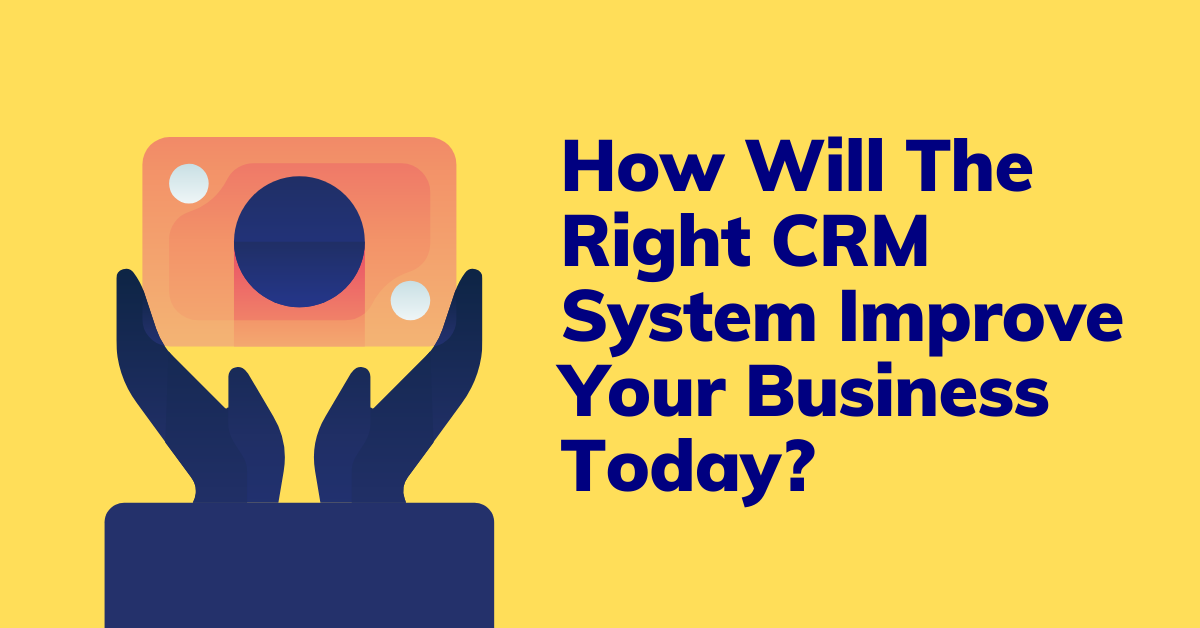How will the right CRM System improve your business today? Read this post to find out how.
When you look around the roofing business and see which firms are genuinely nailing it in their regions, you’ll see a few things in common among the most successful contractors. Using a customer relationship management (CRM) system is one of such factors.
But what does this technology mean for roofing industry executives, and why should you consider implementing it?
Table of Contents
4 Benefits Of A CRM For Contractors
A CRM system is a piece of software that keeps business data such as contacts, to-do lists, and invoices, as well as generating reports on the development of your firm.
A CRM handles many issues, but its primary objective is straightforward: What you’re already performing manually can be automated with a CRM system.
A CRM system might be helpful if you’re utilizing a combination of paper files and web tools to keep track of leads, get pipeline reports, build a list of action items for the day, or inquire if a team finished yesterday’s work list.
Continue reading to discover four ways a CRM may assist you in overcoming typical difficulties and expanding your business.
1. Reports And The Sales Funnel
The ability to line up future projects while working on a current project is one of the most crucial abilities to have in the roofing business.
Once you begin a project, you work diligently to complete it properly and efficiently. If you don’t have a regular stream of leads and new clients under contract, you can find it challenging to stay in business.
On the other hand, a reliable sales pipeline might help you make more educated financial decisions if you track your existing and upcoming jobs frequently. A CRM provides periodic sales data that assist you in seeing where you need to grow or develop your business.
2. Visibility Of The Goal
You should do so today if you don’t already have net profit, sales, and gross profit targets.
After you’ve agreed on these objectives, it’s time to figure out how you’ll achieve them. CRM software allows you to see what each team member should do every week or day to meet these objectives.
Those everyday duties create habits over time, allowing your company to achieve consistent outcomes.
READ ALSO: The Real Impact of Cloud-Based Integration Solutions on Businesses Today
3. Workflows That Are Customized
While everyone on your team should be working toward the company goals you’ve set, their daily, weekly, monthly, quarterly, and yearly objectives will differ depending on their position.
Most CRM software allows users to customize workflows based on their position or project. This will enable you to set uniform goals and expectations for each team member, whether they work in sales, project management, or as part of your crew.
If you’ve ever observed five individuals execute the same job and then tried to train a newcomer, you know how inefficient and confusing inconsistent workflows can be.
Standardizing procedures and milestones is an excellent method to help your team work more efficiently with less supervision while keeping track of progress toward the objectives that will propel your company forward.
4. Accountability Measurement
If you didn’t track each player’s batting average, you’d have difficulty analyzing a professional baseball team’s performance and determining how to coach them.
One of the advantages of using a CRM for contractors is that it allows you to track work performance and give support to your team members.
Frequently Asked Questions
How does a CRM system help companies improve their business?
CRM systems offer a multitude of benefits that can directly impact your business’s success. Here are a few key ways:
- Enhanced Customer Relationships: A CRM centralizes all your customer interactions (calls, emails, notes, etc.) in one place. This fosters a 360-degree view of your customers, allowing you to understand their needs, preferences, and purchase history better. This knowledge empowers you to personalize communication, offer targeted recommendations, and ultimately build stronger, more loyal customer relationships.
- Improved Sales Pipeline Management: Manage your sales pipeline efficiently by tracking leads, opportunities, and deals within the CRM. You can visualize the sales process, prioritize leads, automate tasks, and forecast sales more accurately. This streamlines the entire sales cycle and increases the chances of closing deals.
- Boosted Marketing ROI: CRM data can be invaluable for targeted marketing campaigns. You can segment your customer base based on demographics, purchase history, and interests. This allows for sending personalized marketing messages, maximizing campaign effectiveness and return on investment (ROI).
- Increased Productivity and Collaboration: A CRM streamlines communication and collaboration within your sales, marketing, and customer service teams. Everyone has access to the same customer information, eliminating data silos and ensuring everyone is on the same page. This leads to improved teamwork, faster response times, and ultimately, increased productivity.
- Data-Driven Decision Making: A CRM system accumulates valuable customer data over time. This data can be analyzed to identify sales trends, customer preferences, and areas for improvement. You can use these insights to make informed decisions about your sales, marketing, and overall business strategy.
How can a CRM system improve the overall efficiency of a business?
By automating tasks, streamlining workflows, and centralizing customer information, a CRM significantly improves business efficiency:
- Automated Tasks: CRM systems can automate repetitive tasks such as sending follow-up emails, generating reports, and scheduling appointments. This frees up your team’s time to focus on more strategic activities.
- Streamlined Workflows: CRMs establish clear workflows for handling leads, managing sales opportunities, and providing customer service. This ensures consistency, reduces manual work, and allows your team to work smarter, not harder.
- Centralized Information: Having all customer data readily available in one place eliminates the need for searching through emails, spreadsheets, or sticky notes. This saves time and ensures everyone has access to the most up-to-date information.
Why is a CRM system important to your business and its future growth?
In today’s customer-centric world, building strong relationships is crucial for business growth. A CRM empowers you to:
- Provide exceptional customer service: With a complete customer history at your fingertips, you can personalize interactions, resolve issues promptly, and exceed customer expectations, leading to increased customer satisfaction and loyalty.
- Retain existing customers: A CRM helps you identify at-risk customers and proactively address their concerns. Additionally, it allows you to personalize marketing campaigns to re-engage existing customers and encourage repeat business.
- Attract new customers: By analyzing customer data and identifying successful marketing strategies, you can refine your approach and attract new customers who are more likely to convert into loyal patrons.
What is the role of CRM in today’s business environment?
In today’s competitive landscape, businesses need to be data-driven, customer-centric, and efficient. A CRM system provides the tools and insights to achieve these goals. It acts as a central hub for managing all your customer interactions, streamlining internal processes, and ultimately driving business growth. By leveraging a CRM effectively, you can gain a competitive edge, build stronger customer relationships, and ensure the long-term success of your business.
A Final Word
Still undecided about whether or not a CRM for a roofing company is suitable for your company? Inquire of other roofing contractors that utilize a CRM system and what duties it has aided them in completing. You could discover it’s the tool you need to knock out your next project.
INTERESTING POSTS
- Browser Compartmentalization: How to Compartmentalize Your Web Browsers
- Integrate Your Calls To CRM System
- Shut Cybercrime Door With Cybersecurity Training For Employees
- Summer Sales: Top Cybersecurity Products Special Offers And Deals
- Apple Launches Open-source Password Manager for Developers
- 20 Best Cybersecurity Business Ideas For Entrepreneurs
- 4 Essential Tactics For Increasing Sales Today
About the Author:
Daniel Segun is the Founder and CEO of SecureBlitz Cybersecurity Media, with a background in Computer Science and Digital Marketing. When not writing, he's probably busy designing graphics or developing websites.
Meet Angela Daniel, an esteemed cybersecurity expert and the Associate Editor at SecureBlitz. With a profound understanding of the digital security landscape, Angela is dedicated to sharing her wealth of knowledge with readers. Her insightful articles delve into the intricacies of cybersecurity, offering a beacon of understanding in the ever-evolving realm of online safety.
Angela's expertise is grounded in a passion for staying at the forefront of emerging threats and protective measures. Her commitment to empowering individuals and organizations with the tools and insights to safeguard their digital presence is unwavering.








